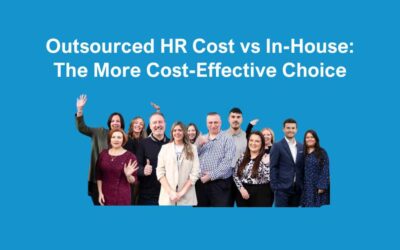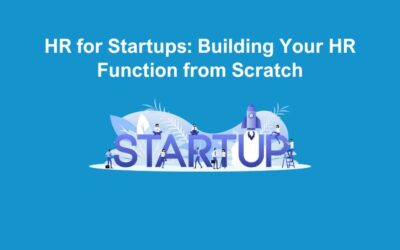Recent ONS statistics reveal that over 2.5 million people in the UK are no longer working due to sickness. Mental health issues and home-working-related neck and back problems have contributed to this rise. While long term sickness is more prevalent in industries like manufacturing, all sectors must take it seriously. Managing employees with long-term health conditions requires empathy, flexibility, and effective communication. This fosters a supportive workplace while maintaining productivity.
In this blog, we will delve into strategies for managing absence, and fostering an atmosphere of compassion. We will also look at how to drive success both for the individual and the organisation.
Sickness Policy for your employees
A well-crafted sickness policy serves as a cornerstone of a fair and efficient workplace. This policy outlines guidelines and procedures for employees who are unable to work due to ill health, ensuring consistency and transparency in how situations such as long term sickness is managed. This typically covers:
- Reporting procedures
- Notification timelines
- Required documentation (for example medical information or medical evidence)
- The provision of sick leave benefits.
By clarifying expectations and procedures, a sickness policy not only supports employees during times of illness but also enables employers to effectively plan and allocate resources. This promotes a harmonious balance between the well-being of the workforce and the operational needs of the organisation. Having this policy in place may also help you avoid legal risk in the future.
Track Sickness with HR Software
By monitoring absences, you can gain valuable insights into common health problems, trends, patterns, and potential underlying issues that might impact productivity, employee well-being, and how this can lead to long term sickness. This data-driven approach empowers you to make informed decisions, ensure optimal resource allocation, maintain a positive work culture, and uphold transparency and accountability in your workforce management practices.
An easy and reliable way to absences is through an online HR admin software. We use Breathe HR in our business and also help our clients with accessing the system.
Long-term sickness absence meeting
Maintaining a line of communication with your employee is part of managing sickness absence. A lot of the time, businesses leave it too long to hold a welfare meeting and all of a sudden it’s months later. It’s important to schedule these check-ins with your employee on long term sickness to discuss progress, challenges, and any reasonable adjustments required.
Employers should arrange a welfare meeting with the employee, either in person or virtually, to understand their health condition, assess its impact on their ability to work, and determine whether they can return. This meeting also provides an opportunity to discuss support options, such as a phased return. A copy of the meeting notes should be shared with the employee to maintain a record of their absence and demonstrate the employer’s commitment to their well-being.
Access to Resources
Another way to manage long term sickness absence and employee wellbeing in general is to provide access to resources that support your employee’s physical and emotional well-being. This includes:
Employee Assistance Programs (EAPs)
Employee Assistance programs offer a comprehensive range of confidential support services designed to assist employees in managing personal and work-related challenges that could impact their overall health and performance. EAPs typically encompass a spectrum of services, including mental health counselling, stress management, financial and legal consultations, substance abuse assistance, and resources for dealing with life transitions. By providing employees with access to these resources, organisations demonstrate a genuine commitment to their staff’s holistic well-being, fostering a supportive and caring work environment.
Wellness Initiatives for employees with long term absence
Wellness initiatives play a transformative role in aiding employees dealing with long-term sickness. These initiatives offer a spectrum of proactive and holistic support that extend beyond medical treatment. By incorporating wellness programs into the workplace, you empower individuals with tools to manage their health challenges more effectively. These initiatives often include:
- Activities like yoga, meditation, mindfulness sessions
- Nutrition guidance,
- Stress management workshops.
Engaging in these wellness practices can alleviate the physical and emotional toll of long term sickness, reduce stress, enhance mental resilience, and improve overall quality of life.
Understanding Sick Pay
Sick pay serves as a vital safety net for employees facing illness or injury, providing them with financial support during periods of absence from work. Statutory Sick Pay (SSP) is a legal entitlement for eligible employees, offering a fixed amount of £116.75 per week (as of April 2024) for up to 28 weeks. However, many employers choose to offer enhanced sick pay schemes to provide additional support to their workforce, which may include higher pay rates or extended periods of cover based on the employee’s length of service and company policies.
Occupational Health and Reasonable Adjustments
Occupational health services play a pivotal role in promoting employee wellbeing and facilitating their return to work following illness or injury. These services encompass a range of interventions, including health assessments, advice on workplace adjustments, and support for employees with long-term health conditions. Employers have a legal obligation under the Equality Act 2010 to make reasonable adjustments to accommodate employees with disabilities or health conditions. Reasonable adjustments may include modifying work duties, providing assistive technology, or adjusting working hours to ensure that employees are not disadvantaged due to their health status.
Legal Framework
The legal framework surrounding long term sickness is underpinned by the Equality Act 2010, which protects employees with disabilities, including those affected by chronic or long-term health conditions. Employers must ensure compliance by making reasonable adjustments to support affected employees, such as flexible working arrangements or phased returns. Failure to accommodate long-term sickness fairly can lead to claims of discrimination or unfair dismissal, potentially resulting in legal action through employment tribunals or civil courts.
Statutory Sick Pay and Annual Leave
Statutory Sick Pay (SSP) provides employees with a financial safety net during periods of illness, but it may not fully cover their living expenses, especially for those with long-term health conditions. Employees continue to accrue annual leave entitlement while on sick leave, allowing them to take paid time off for rest and recuperation. Employers are encouraged to adopt flexible approaches to managing annual leave, such as allowing employees to carry over unused leave or facilitating its use during or after long term sickness, in accordance with employment legislation and contractual agreements.
Fit Note and HR Services
A fit note, issued by a healthcare professional, certifies an employee’s fitness for work or provides details of their health condition and potential adjustments required. Fit notes play a crucial role in absence management, informing employers of the employee’s health status and facilitating discussions around their return to work. HR services are instrumental in supporting employees on long term sickness, coordinating with occupational health providers, and implementing return-to-work programmes tailored to the individual’s needs. Effective communication and collaboration between HR professionals, line managers, and employees are essential for ensuring a smooth transition back to work.
Unfair Dismissal and Legal Advice
Unfair dismissal occurs when an employee is dismissed without a valid reason or due to discriminatory practices. Employees who believe they have been unfairly dismissed due to long term sickness can seek legal advice and may pursue claims through employment tribunals or civil courts. Employers must follow fair and transparent dismissal procedures, including providing reasons for dismissal. You must also offer opportunities for appeal, and ensure compliance with statutory requirements. Legal advice is invaluable when navigating complex employment law issues. It ensures rights and obligations are upheld throughout the process.
Long Term Sickness Holiday Entitlement
Employees on sick leave continue to accrue holiday entitlement in line with their employment contracts, providing them with opportunities for rest and recuperation. Employers may allow employees to carry over unused holiday entitlement to the following year or facilitate its use during or after sickness absence, in accordance with legal requirements and organisational policies.
Supporting an Employee’s Return to Work After Long-Term Sickness
When an employee returns after long-term sickness, employers should take a structured and supportive approach to ease their transition back into the workplace. A phased return, allowing reduced hours or lighter duties, can help the employee gradually rebuild their capacity. Regular check-ins should be arranged to monitor progress and address any concerns. Employers must also consider reasonable adjustments, such as flexible working, specialised equipment, or additional support, to accommodate ongoing health needs. Open communication and a supportive work environment are key to ensuring a successful and sustainable return to work.
Preventing Long-Term Absence
Employers can reduce the risk of long-term absence by fostering a healthy and supportive work environment. Promoting employee well-being through mental health support, ergonomic workspaces, and flexible working options can help prevent health issues from escalating. Regular check-ins and early intervention when an employee shows signs of stress or illness can also make a significant difference. Encouraging a good work-life balance, providing access to occupational health services, and ensuring a positive workplace culture all contribute to minimising long-term sickness and maintaining a productive workforce.
Addressing short-term absence proactively through effective absence management policies and interventions can also help prevent prolonged periods of sickness and minimise disruption to the business.
Contact Us
If you are in need of support with managing long term sickness or need advice on next steps beyond this, our HR consultants are here to help.







